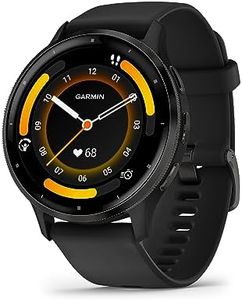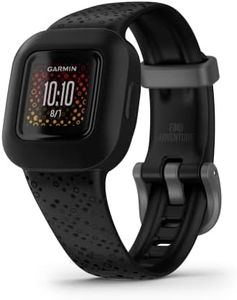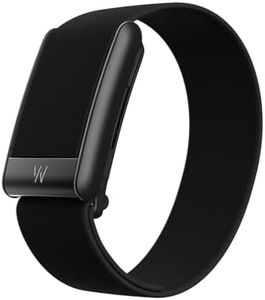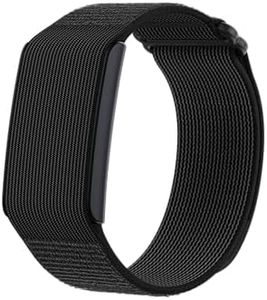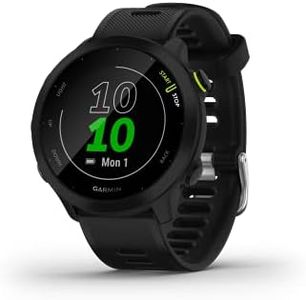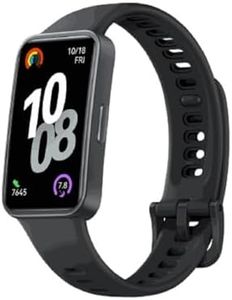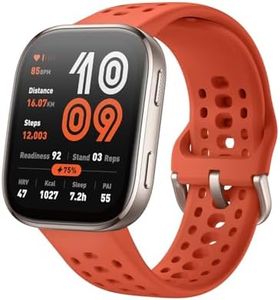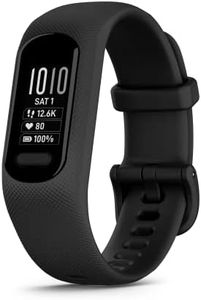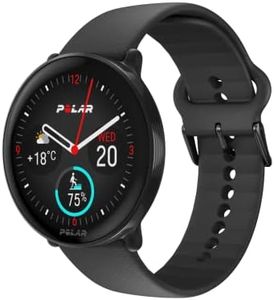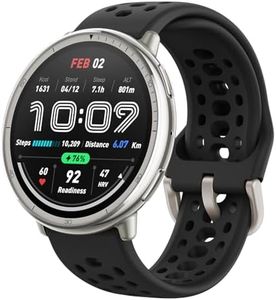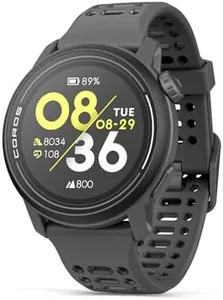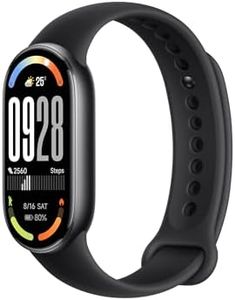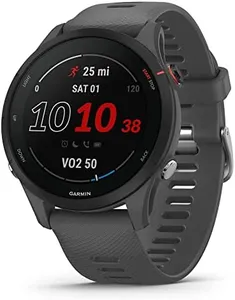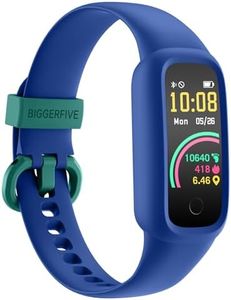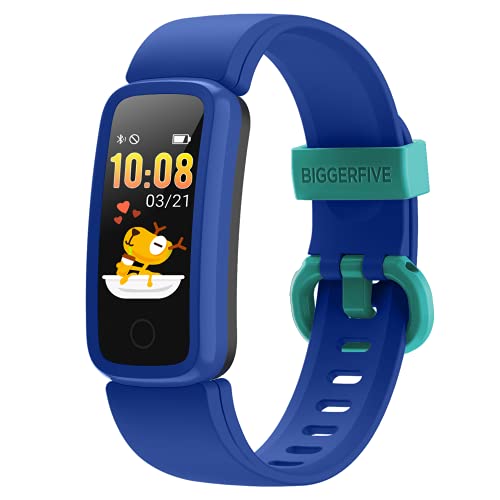We Use CookiesWe use cookies to enhance the security, performance,
functionality and for analytical and promotional activities. By continuing to browse this site you
are agreeing to our privacy policy
10 Best Activity Trackers
From leading brands and best sellers available on the web.By clicking on a link to a third party's website, log data is shared with that third party.
Buying Guide for the Best Activity Trackers
Activity trackers are wearable devices designed to monitor and record your daily physical activity, such as steps taken, distance walked, calories burned, and often even your sleep patterns. Picking the right activity tracker depends on your lifestyle, health goals, and how much data you want to track. Consider how you plan to use the device: casual daily movement, targeted exercise routines, or in-depth health monitoring. Think about comfort, ease of use, and which features align best with your personal ambitions, whether that's keeping you motivated, showing progress, or helping you manage specific health metrics.Step Tracking AccuracyStep tracking tells you how many steps you take in a day, which is a key motivator for many users. The importance of accuracy depends on how you intend to use the data; if you're aiming for simple movement goals, almost any tracker will suffice. If you want to be sure the count is as precise as possible, look for trackers that use advanced motion sensors and algorithms. For casual usage, moderate precision is fine, but if you want to analyze your activity patterns more closely, choose a tracker known for higher accuracy.
Heart Rate MonitoringHeart rate monitoring measures your pulse, which can help you understand your fitness level, monitor workout intensity, and even stress levels. Some trackers offer basic pulse readings, while more advanced ones provide 24/7 monitoring with insights into resting heart rate, zones, and trends over time. If heart health, fitness improvement, or stress tracking is important to you, opt for 24/7 monitoring. For users mostly focused on step counting or casual use, occasional heart rate readings may be sufficient.
Battery LifeBattery life determines how long you can use your tracker before needing to recharge it. Trackers vary from a few days up to several weeks on a single charge. Shorter battery life often accompanies advanced features like vibrant displays or continuous GPS use. If you dislike frequent charging, go for devices that last a week or more. If you don’t mind nightly charging or need advanced features, shorter battery life may be acceptable.
Water ResistanceWater resistance defines whether your tracker can handle sweat, rain, showering, or even swimming. Basic trackers withstand splashes and sweat, while more advanced models are suitable for swimming with specific depth ratings. If you swim or want to track water-based workouts, choose a model with swim-proof water resistance. Otherwise, basic resistance might be all you need for day-to-day wear.
Display TypeDisplay type refers to how information is shown to you, like via LED lights, simple screens, or high-resolution touch displays. Simple displays often just show step count or basic stats, while advanced ones can show notifications, detailed data, and even apps. If you prefer minimalism and simplicity, a basic display works well. For more interactivity or if you want to see detailed stats instantly, go for a tracker with a larger, clearer screen.
Activity Recognition & Sports ModesActivity recognition means the tracker can automatically figure out what kind of exercise you're doing, such as walking, running, or cycling. Some trackers offer specific sports modes which allow you to track different types of activities more precisely. If you engage in a variety of activities or want in-depth tracking for your favorite sport, prioritize trackers with automatic recognition and multiple sports modes. If you’re mostly walking, basic recognition may be enough.
Sleep TrackingSleep tracking monitors both the duration and quality of your sleep, offering insights into patterns like deep and light sleep phases. Some trackers keep it simple with total time asleep, while others provide deeper data about your sleep stages and offer tips to improve rest. If improving your sleep is a goal, pick a tracker that offers comprehensive sleep analysis. If sleep tracking is less important, a basic model will suffice.
Companion App and Data SyncThe companion app lets you review your activity data, analyze your trends, set goals, and connect with other fitness services. Some apps are easy to use and give you just the essentials, while others offer detailed analysis and broader social features. If you enjoy tracking your progress or want to share your fitness journey, select a tracker with a robust and user-friendly app. Basic syncing is enough for those who just want to glance at their stats.
